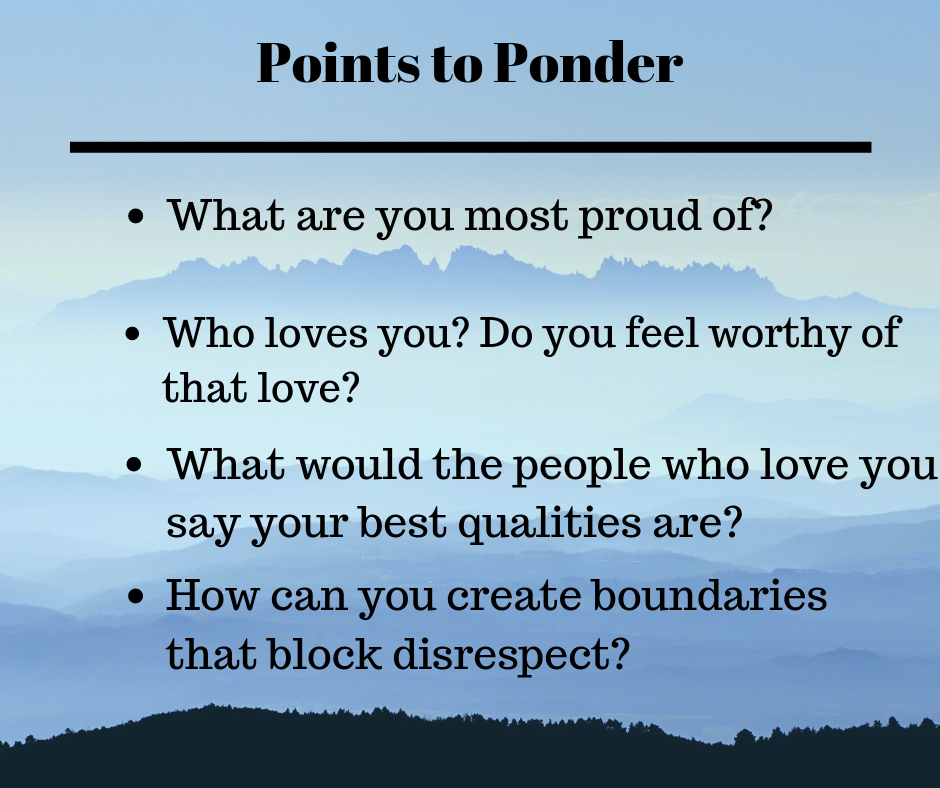
Stop the Stigma
My heart is hurting. This has been a rough couple of weeks in the media for Functional Neurological Disorder. On the one hand, at least FND has gotten some long overdue recognition. Unfortunately, it feels like the attention has just perpetuated the stigma.
I was excited to watch a television show produced by Netflix that portrayed a woman who was believed to have FND. At the conclusion, she rejected consideration of the diagnosis because of the stigma. She felt that having a diagnosis of Functional Neurological Disorder would lead to being dismissed by the medical community. I wish I could say she was wrong. Watching the show brought back the pain of mistreatment during my diagnosis and my battle to finally come to terms with it and accept it.
A few days ago I read an article about a neurologist who had neurological symptoms herself and struggled with finding a diagnosis. One of the diagnostic possibilities she was confronted with was FND. I was saddened to read that the mere suggestion of this diagnosis was offensive to her. This respected neurologist used terms such as “hysterical”, “crazy”, “screw loose”, and “psych case” when discussing her views about her potential FND. In the end, she pursued a different diagnosis, underwent a risky surgery, and seems to be doing well today. I wish her the best and I hope she continues to thrive, but I don’t appreciate her bias against FND. If you are a person who diagnoses and/or treats FND, but you would not accept the diagnosis if you developed symptoms, you are biased against FND.
Before I go any further, I have some things to get off of my chest.
- Functional Neurological Disorder is an illness, just like any illness.
- FND is not your fault. No one chooses to have this disorder.
- FND says nothing about your character.
- All patients, no matter their diagnosis, deserve respect.
There, I feel a little better.
Throughout history, there have been diseases treated with contempt, disrespect, and stigma. At one time, epilepsy was thought to be due to demon possession. People with leprosy were blamed for their condition, seen as a punishment for sins. With the advent of science and explanations for disease, we should have progressed past the point of blaming the patient for their illness.
Unfortunately, there are still some diseases that are rife with stigma. HIV/AIDS, sexually transmitted diseases, mental illness, and obesity are all conditions that continue to be looked at as the patient’s fault. How does blaming the patient help anyone? Why not acknowledge that all disorders are a part of the frailty of being human? Maybe we think that if a disorder is someone’s fault, we can somehow shield ourselves from the same fate.
Stigma produces severe consequences. People tend not to pursue treatment when they feel that they are being judged and blamed. Sometimes physicians refuse to treat or offer sub-standard treatment for patients with diseases that they prefer not to see. As a result, there are often poor outcomes to stigmatized illnesses.
When it comes to stigma, I’d venture to say that Functional Neurological Disorder is in a category of its own. Just look at some of the ways the medical community has failed those of us with FND.
- Many patients with FND are not even told the name of their disorder. That was the case for me with most of the doctors I saw. Sometimes patients are told what they do not have, or they are told their symptoms are due to stress. This disorder has a name. It is not shameful. Say it out loud. Functional Neurological Disorder. Do you remember in the Harry Potter books that most people refused to say the name of Voldemort? Harry wasn’t afraid to say it and he was able to conquer the enemy. There is power in speaking a name.
- Research on FND is in its infancy. In how many other neurological disorders is this the case? If FND is as common as most neurologists say it is, this lack of study is reprehensible.
- Treatment programs are few and far between. Treatment protocols are non-existent. Why have Functional Neurological Disorder patients been left to fend for themselves?
- Patients with Functional Neurological Disorder have been treated like human ping-pong balls, bouncing between neurologists and psychiatrists, neither specialty wanting to lay claim to the disorder. What other illness lies in the gap of two specialties? I find it ironic that in the US, neurologists and psychiatrists share the same board certification, yet they tend to abandon the condition most in need of their joint specialties.
- Too often, once a patient has been diagnosed with FND, they are treated with suspicion whenever they are faced with a new medical issue. Patients with FND, like all humans, can develop other illnesses. To deny any patient respectful, competent care is medical malpractice.
- Often patients with FND are thought to be attention-seeking. Sometimes families are instructed to ignore and neglect patient symptoms. What other illness is “treated” with abandonment? FND patients have often experienced mistreatment in their lives and may critically need positive, compassionate attention, not neglect. In my opinion, a body screaming for help that is ignored or treated with contempt often screams louder. That certainly was the case for me as I struggled to find help.
- Many FND patients are sensitive souls. We pick up on the things that may remain unspoken. When a physician wishes we would disappear, we notice. We feel the shame
We deserve so much better. My heart hurts for all of us with FND. No one would choose this disorder. The woman in the Netflix show wouldn’t choose it. The neurologist who should know better wouldn’t choose it. At one time, I preferred a diagnosis of a terminal neurological illness over an FND diagnosis. I certainly didn’t choose to have FND.
What a tragedy this is! With the correct approach to diagnosis and treatment, many patients can recover! Satisfying and fulfilling lives are within reach of people with FND. So much suffering could be alleviated if only Functional Neurological Disorder was given the respect it deserves.
How do we combat the stigma associated with this disorder? Personally, fighting the stigma is one of my goals in starting this blog. For so many years, I was ashamed of my diagnosis. I thought it said terrible things about me. I believed I deserved the contempt I felt from some of those who were treating me. I was wrong! I hope that by putting my name and face to the disease, it might make acceptance easier for someone else. There are many wonderful people in the world who have been afflicted with Functional Neurological Disorder. I am privileged to call many of them friends. If you have been diagnosed with FND, don’t be afraid to let others know your diagnosis. Taking this illness out of the shadows and into the light will help patients in the future understand that it is nothing to be ashamed about.
Have you ever thought about the concept of shame? It’s one thing to be embarrassed- embarrassment is when we do something that we regret and wish we could do it over. We all do embarrassing things at times. Shame is on another level. Shame is not feeling like we did something wrong, it’s feeling like WE are wrong to the depth of our being. Shame tells us that we are so despicable that we shouldn’t even exist. What a lie! We are all valuable, worthy humans, deserving of love, compassion, and respect.
Don’t let FND define you! You are so much more than your illness! Hold your head high if you live with this devastating disorder. You are an FND warrior!



6 Comments
The stigma of FND in the medical profession is reprehensible. At 12 years old, my son has been essentially abandoned by his medical practitioners, at a time when he needs them the most. He is completely debilitated, unable to speak, suffering from non-epileptic seizures and unable to walk due to significant pain and stiffness in his legs. His childhood, which should be carefree, filled with laughter, fun and making memories is slipping away from him. This diagnosis is devastating on so many levels, but the greatest one being the lack of care and treatment to restore my son’s health. It is medically negligent to leave any patient in this circumstance, let alone a child. We are determined to get him better no matter how long it how difficult the journey will be, and his doctors, who took a Hippocratic oath, should be supporting him on the road to recovery. There needs to be more advocacy and more funding for research so that FND patients can receive the same care and respect that every patient deserves. I believe that one day, researchers will discover an organic cause to this disorder, a change in the brain that impacts emotions and functionality. I only hope that this discovery and better protocols for treatment happen sooner rather than later so that all FND patients have the opportunity to fulfill their dreams and live the life they deserve.
You are so right, Melissa. That’s exactly why I started my blog. It’s shameful the way so many FND patients have been treated. Wishing your son all of the best.
Your whole bullet point about how, often, patients with FND are thought to be attention seeking rings so loud and clear to me. With no formal diagnosis and “only” leg weakness and/or pain which can be felt much more than seen, I have been bounced around from foot consultant to back consultant to GP, whilst I personally employed a psychotherapist to deal with my emotions around what had happened to me. Then I waited over a year for a “Pain Management Course” at a leading neurological hospital. They assured me that despite the weakness being 50% of the problem(so not entirely pain) this would be the right place.
When I recently got the assessment for that by video link, I “saw” a physiotherapist, a psychotherapist and an occupational therapist. The outcome was that I will not immediately be suited to the course (which would involve an video linked patient group +professionals)…and the reason for my unsuitability was deemed to be that they thought I would be “too overwhelmed” by it, at this stage! In one way it feels like I have been “bounced” on again. Indeed the waiting and bouncing HAS left me overwhelmed! So now I must wait even longer for a video link course of psychotherapy. I do actually feel that the pain management group course, provided only as as a video link, might be very lacking. The psychotherapy could provide a delay for me with a tiny hope then of a post Covid , real, face to face pain management course.
In the meantime I am using your blog for my best inspiration. There really is nothing else I have found which is helpful and hopeful. I actually feel that your “voice” and ideas are more vital to sufferers of FND than anything else around. The mostly unchanging, information page on FND hosted by John Stone is good as a basis for understanding and to make one feel there is a possible explanation, of sorts. However, your thoughts, tips, advice and your entirely believable personal experience needs to reach more people somehow. If I could improve and get more control of what is going on with me, I also would like to reach out to help others…but I am still on that journey – and I don’t have your medical background. Good luck and keep up the good work.
Thank you for the encouragement, Elaine. I’m always open to thoughts on how to reach more people. I’m still learning ways to manage my FND and don’t have all the answers, but feel so strongly that we can do a lot to help ourselves. We should not be abandoned by the medical profession. I’m so sorry you were denied the opportunity to participate in the course you were pursuing. Sometimes it seems like we are almost being punished for having FND. My neurologist denied my request for PT until I’d spent more time in psychotherapy. How patronizing! That was the point where I figured things out for myself.
I wish you all the best as you learn to manage your FND.
❤️Max
Love the Points to Ponder section of each post❣️Thank you for your valuable advocacy and peer support for those of us with lived experiences. I’d live to connect as my aims are aligned with your although I’m fairly new to the blogging scene. Jocelyn
#StrongerTogether
Love the Points to Pinder section of each post❣️Thank you for your valuable advocacy and peer support for those of us with lived experiences. I’d live to connect as my aims are aligned with your although I’m fairly new to the blogging scene. Jocelyn
#StrongerTogether